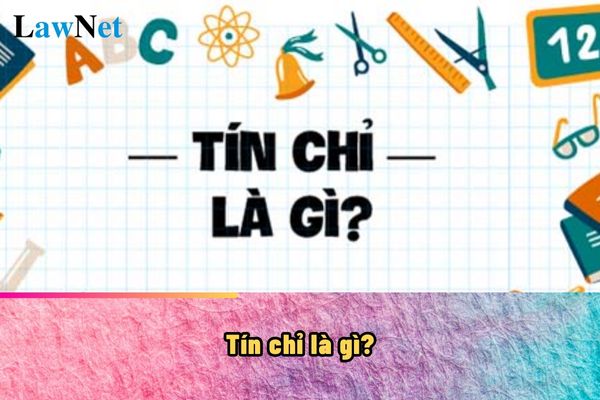What is a credit in education in Vietnam? What is the minimum number of credits required for university students in Vietnam?
What is a credit in education in Vietnam?
Currently, some students still do not know what credits are. Based on Clause 2, Article 3 of the Regulation on undergraduate training issued together with Circular 08/2021/TT-BGDDT, credit-based training is:
- It's a method of organizing instruction by course, allowing students to accumulate credits for each course and carry out the training program according to their individual study plans, in line with the teaching schedule of the educational institution;
- Students who fail a compulsory course will have to retake that course or take an equivalent course as prescribed in the training program, or take a replacement course if the original course is no longer offered;
- Students who fail an elective course will have to retake that course or may choose to take another elective course as prescribed in the training program.
Educational institutions will choose to apply the credit-based training method as follows:
- Apply uniformly to all courses and forms of training; or
- Apply to some courses or to a form of training.
Thus, a credit is a unit of measurement for the amount of academic work of a student at higher education institutions. Each subject will be converted into a certain number of credits, depending on the duration, difficulty, and volume of knowledge of that subject.

What is a credit in education in Vietnam? What is the minimum number of credits required for university students in Vietnam? (Image from the Internet)
What is the minimum number of credits required for university students in Vietnam?
Based on Clause 2, Article 7 of Circular 17/2021/TT-BGDDT governing study workload:
Study workload
1. The study workload of a training program, each component, or each course in the training program is determined by the number of credits.
a) One credit is equivalent to 50 hours of standard learning by students, including time spent attending lectures, guided study, self-study, research, experience, and assessments;
b) For classroom activities, one credit requires a minimum of 15 hours of lectures or 30 hours of practice, experiments, or discussions, in which one classroom hour is equivalent to 50 minutes.
2. The minimum study workload of a training program must comply with the requirements of the Vietnamese National Qualifications Framework. Specifically:
a) Undergraduate training programs: 120 credits, plus the required amount of physical education, national defense and security education as prescribed by current regulations;
b) Specialized bachelor’s programs at Level 7: 150 credits, plus the required amount of physical education, national defense and security education as prescribed by current regulations; or 30 credits for those with an undergraduate degree in the same discipline;
c) Master’s programs: 60 credits for those with an undergraduate degree in the same discipline;
d) Doctoral programs: 90 credits for those with a master's degree, 120 credits for those with an undergraduate degree in the same discipline.
3. The minimum study workload for double-major programs must add 30 credits, and for major-minor programs, must add 15 credits compared to the corresponding single-major programs.
According to the regulation, undergraduate students must complete a minimum of 120 credits plus the required amount of physical education and national defense and security education.
Thus, the minimum number of credits that university students must ensure is 120 credits and can be more than 120 credits.
What happens if a first-semester university student in Vietnam fails 60 percent of their credits?
Based on the provisions in Clause 1, Article 11 of the Regulation on undergraduate training issued together with Circular 08/2021/TT-BGDDT:
Handling study results based on credits
1. At the end of each main semester, students are given an academic warning based on several conditions as follows:
a) The total number of credits not passed in the semester exceeds 50% of the registered credits for the semester, or the total number of backlogged credits from the start of the course exceeds 24;
b) The semester GPA is below 0.8 for the first semester, below 1.0 for subsequent semesters;
c) The cumulative GPA is below 1.2 for first-year students, below 1.4 for second-year students, below 1.6 for third-year students, and below 1.8 for students in the following years.
2. Students will be expelled in the following cases:
a) The number of academic warnings or the level of academic warnings exceeds the limit set by the educational institution;
b) The study duration exceeds the limit set in Clause 5, Article 2 of this Regulation.
3. The regulation of the educational institution will specifically govern:
a) The choice to apply several conditions for academic warnings, the limit on the number of times or the level of academic warnings but not exceeding 2 consecutive warnings;
b) The process and procedures for academic warnings and expulsion; notification of the form of warning applied to students;
c) The retention of accumulated study results in case of expulsion.
Thus, if a first-semester university student fails 60 percent of their credits, they will be subjected to an academic warning at the end of each main semester.

